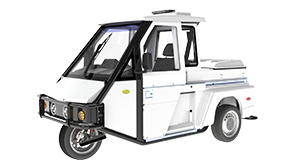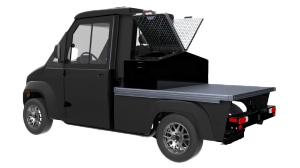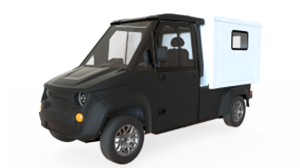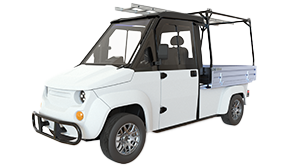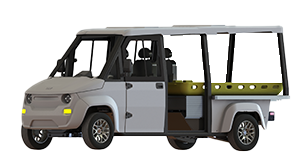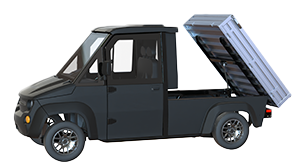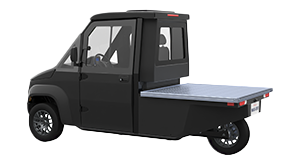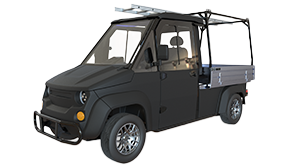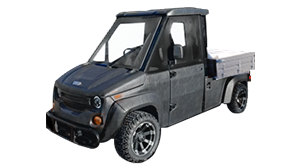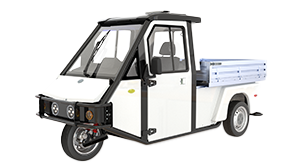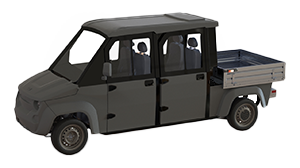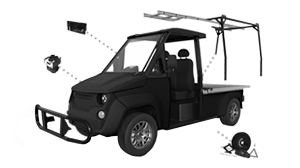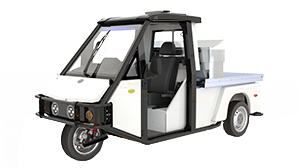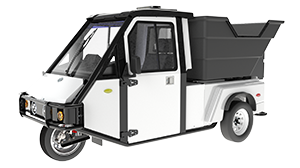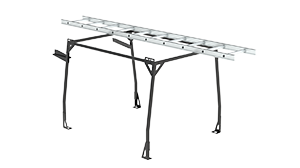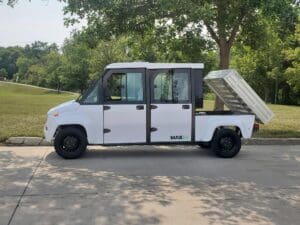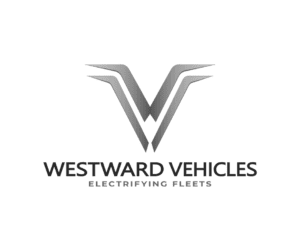In the face of climate change, businesses across various industries are recognizing the importance of sustainability and its impact on the environment. This paradigm shift is particularly evident in the commercial fleet industry, where the adoption of eco-friendly practices and vehicles is changing the game while saving money.
As fleet managers and vehicle manufacturers strive to meet the demands of a greener future, the landscape of commercial fleet vehicles is evolving. Let’s explore how sustainability is driving this transformation and revolutionizing the way businesses operate their fleets.
The Rise of Electric Commercial Vehicles
One of the key drivers of sustainability in the commercial fleet industry is the increasing popularity of electric vehicles (EVs). With zero tailpipe emissions and reduced dependence on fossil fuels, EVs offer a cleaner and more efficient alternative to traditional combustion engines.
As governments and regulatory bodies around the world implement stricter emissions standards, businesses are turning to electric commercial vehicles to comply with these regulations and reduce their carbon footprint.
Advantages of Electric Commercial Fleet Vehicles
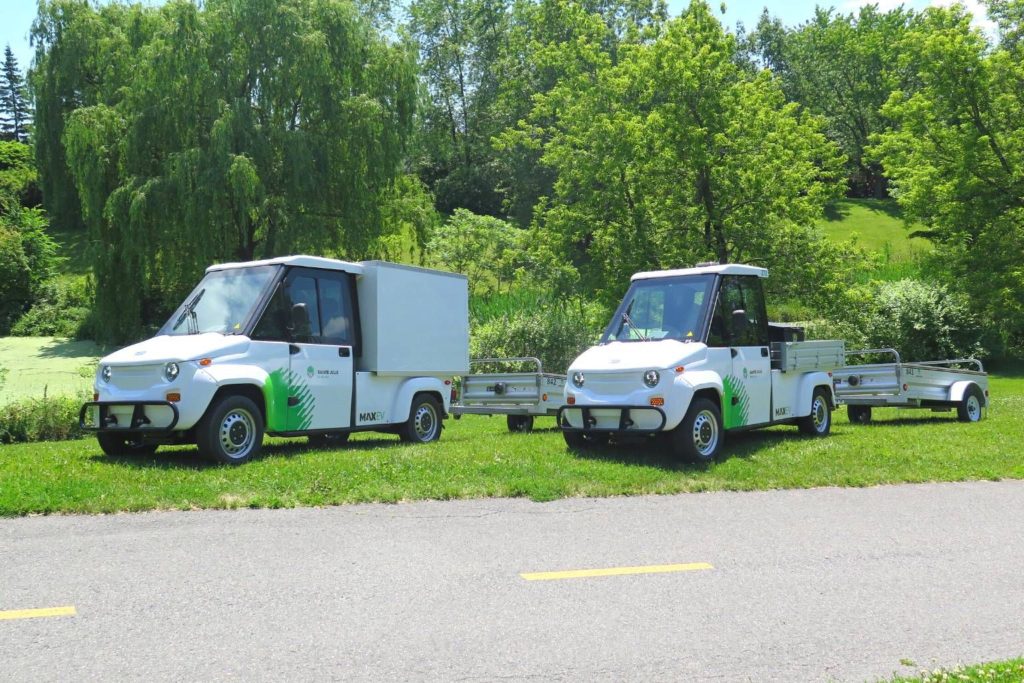
The shift towards electric commercial fleet vehicles offers unique benefits for your business.
1. Environmental Impact Reduction
One of the primary advantages of incorporating a sustainable commercial fleet vehicle in your business is its significant contribution to reducing environmental impact. Traditional vehicles such as pickup trucks and vans emit greenhouse gasses and other pollutants that contribute to air pollution negatively affect climate change while reducing air quality in their work environments.
In contrast, electric vehicles (EVs) produce zero tailpipe emissions, making them an eco-friendly alternative. By transitioning to EVs or other sustainable options, commercial fleet managers can play a crucial role in combating climate change and improving air quality in urban areas. This transition not only benefits your business but also resonates with customers who value eco-conscious choices.
2. Cost Savings
While the initial investment in a sustainable commercial fleet vehicle may be higher than traditional vehicles, the long-term cost savings can be substantial. EVs, for example, have lower maintenance and fuel costs compared to internal combustion engine vehicles.
With fewer moving parts and regenerative braking technology, EVs require less maintenance and have longer lifespans. This makes them an excellent choice for a business operating a large vehicle fleet.
Additionally, the cost of electricity for charging EVs is often lower than gasoline or diesel, resulting in significant savings for a business operating a large vehicle fleet. You can even conduct a test drive of the EVs before incorporating them into your fleet, ensuring that they meet your business requirements
This aspect brings to your company cost savings, which you may use in other areas.
3. Government Incentives and Grants
To encourage businesses and business people to adopt these sustainable commercial fleet vehicles, governments around the world offer various incentives and grants. These financial incentives can significantly reduce the upfront costs of purchasing or leasing eco-friendly vehicles.
Government programs often provide tax credits, rebates, grants, or low-interest loans to support businesses in transitioning to sustainable transportation options. By taking advantage of these incentives, your company can further enhance its cost savings and accelerate the transition to a greener fleet.
4. Energy Efficiency
Electric vehicles (EVs) are a more energy-efficient option compared to internal combustion engine (ICE) vehicles. They have the ability to convert a higher percentage of energy from the grid into usable power for driving. This increased efficiency not only leads to reduced energy consumption but also makes EVs more sustainable in the long run.
In the business sector, EVs are gaining popularity as they provide a greener and more cost-effective alternative for transportation. They are not limited to cars, but also include trucks, vans, and other service vehicles. Moreover, EVs generate valuable data that can be utilized for various purposes, enhancing overall operational efficiency.
By incorporating electric vehicles into your fleet, your business significantly reduces its carbon footprint and contributes towards environmental sustainability.
5. Brand Image and Customer Perception
Incorporating electric fleet vehicles into your company’s operations can greatly improve its brand image and reputation as an environmentally conscious and innovative organization. By embracing sustainable practices such as using electric cars and trucks for its fleet, your company enhances its standing with both consumers and clients. This commitment to eco-friendly transportation services leads to a more favorable perception of the company among stakeholders.
Overcoming Challenges: Infrastructure and Range Anxiety
While the benefits of electric commercial fleet vehicles are evident, there are still challenges that need to be addressed for widespread adoption.
1. Availability of Charging Infrastructure
One of the main challenges in the electric vehicle industry is the availability of charging infrastructure services.
To facilitate the transition to electric vehicles, businesses and governments need to determine and invest in the development of a robust charging network. This includes determining the locations for installing charging stations at workplaces, depots, and public areas to ensure convenient access to charging for fleet vehicles and efficient operation of the entire electric vehicle ecosystem.
2. Range Anxiety
One of the major hurdles in the electric vehicle industry is range anxiety, a term that encompasses the apprehension of depleting battery power before reaching a charging station. This challenge is particularly a big issue for fleet owners and operators who heavily rely on vehicles as part of their business operations.
To overcome this, vehicle manufacturers are continuously improving the range of electric commercial vehicles. Modern EVs can travel hundreds of miles on a single charge. Westward Vehicles have battery options that extend the range of our Low Speed Vehicles making them suitable for a wide range of applications, lasting sometimes several days between charges.
These advancements in vehicle technology are crucial as they provide more efficient and reliable services, supported by data-driven insights, and better equipment to meet the evolving needs of the market.
3. High Upfront Costs
The adoption of electric vehicles has been hindered by the substantial upfront expenses associated with them. Electric vehicles are generally pricier than traditional fuel-powered counterparts, primarily due to the costs of batteries and other components.
Although there has been a gradual decline in electric vehicle prices, they still remain unaffordable for many consumers. However, for fleets and services that can afford the initial investment, the long-term benefits such as lower maintenance costs and efficient equipment make electric vehicles an attractive option.
To address this challenge, at Westward vehicles we continue investing in research and development to reduce the cost of production.
Innovative Solutions: Last-Mile Delivery
Sustainability is playing a crucial role in driving change in the last-mile delivery sector. The growing popularity of e-commerce and online shopping has led to an increased need for delivery solutions that are both efficient and environmentally friendly.
To meet this demand, businesses are now considering alternative options like electric vans, cargo bikes, and drones for their last-mile deliveries. This not only helps reduce congestion and emissions in urban areas but also ensures a more sustainable approach to delivery services. Small LSVs such as the Max-EV are ideal for this purpose due to their ability to efficiently transport cargo while minimizing maintenance requirements. These versatile vehicles provide an excellent solution for businesses looking to optimize their fleets and offer top-notch delivery services.
The Role of Fleet Management in Sustainability
Effective fleet management plays a crucial role in achieving sustainability goals. As a fleet manager, you are responsible for optimizing vehicle utilization, reducing idle time and implementing efficient routing strategies. By leveraging data and telematics, a fleet manager can identify areas for improvement and make informed decisions to maximize the efficiency of their fleets.
Additionally, fleet management systems provide insights on driver behavior, enabling your business to implement driver training programs and promote eco-friendly driving habits. This not only reduces fuel consumption and emissions but also improves overall safety on the roads.
The Role of Vehicle Manufacturers in Driving Sustainability
Vehicle manufacturers such as Westward Vehicles play a crucial role in driving sustainability in the commercial fleet industry. We are continuously innovating and developing new technologies to improve the efficiency and environmental performance of our vehicles. This includes advancements in battery technology, regenerative braking systems, and lightweight yet strong automotive-grade materials.
Furthermore, we are constantly investing in research and development to expand the variety of right vehicle options, including electric commercial vehicles, available for our clients. This includes the development of specialty vehicles for specific industries, larger cabin capacity vehicles, and customizable vehicles with several aftermarket equipment optional attachments.
Conclusion
As businesses strive to meet sustainability goals and reduce their environmental impact, the commercial fleet industry is undergoing a significant transformation. The adoption of electric vehicles, innovative solutions like last-mile delivery, and collaboration between businesses and leasing companies are driving this change.
With the support of the right vehicle manufacturers and fleet management solutions, businesses can embrace sustainable practices and optimize their operations. By transitioning to electric commercial fleet vehicles, your business can reduce emissions, lower operating costs, and contribute to a cleaner and healthier environment, while keeping the other aspects of your business running smoothly.
As we look to the future, partner with Westward Vehicles so that your business can achieve first-rate vehicles savings and sustainability throughout your fleet. We will stand with you and play a vital role in shaping your commercial fleet for the long haul to suit your specific needs. By embracing eco-friendly practices and investing in sustainable vehicle solutions, your business can not only meet regulatory requirements but also gain a competitive edge in a rapidly evolving market. Don’t miss the opportunity to take a test drive and experience the right vehicle for your fleet.
